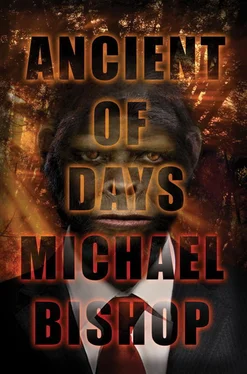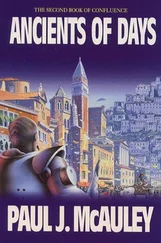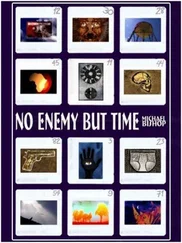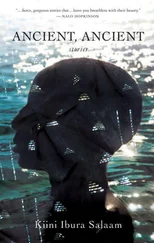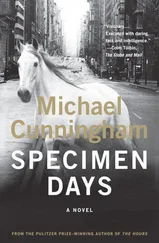BLAIR: But was the population of habilines from which you sprang a patrilineal or a matrilineal society? Was sexual dimorphism a factor in assigning domestic tasks and leadership roles? Did you have any noteworthy rites of passage to mark your movement from one stage of life to another? Did you hunt, scavenge, or forage for your food? That’s what my colleagues will ask me, Adam. Can’t you remember, can’t you tell me anything about such basic matters?
ADAM: In the absence of the people themselves, Dr. Blair, such knowledge seems—forgive me—irrelevant, keenly and profoundly irrelevant.
BLAIR: Hardly, Adam. Knowledge of the world is knowledge of ourselves. What you can tell us of habiline mores, customs, and survival strategies will enable us better to comprehend who and what we are.
ADAM: To know the habiline life in any sense truly meaningful, sir, you would have to live it. You would have to stop scrutinizing it from afar and plunge into it with uncritical abandon. That’s possible no longer. Gone, gone.
BLAIR: If nothing else, can you tell me where you lived?
ADAM: Dominican slaves were freed by Boyer in the 1820s, but it was not until 1874, when Peter Martin Rutherford ceded Montaraz to Haiti, that we habilines obtained our liberty from his cacao and coffee plantations. We left en masse and made a secret republic for ourselves on one of the island’s little-populated fingers. That is all I can say. For a long time, no one bothered us. Then the twentieth century happened, and everything changed. Gradually, oh so piecemeal, for the worse. I’m speaking now, you see, from the vantage of my crystallized ego.
BLAIR: Can you take me to the site or sites of that “republic”?
ADAM: No. It is impossible. They’re gone, and I’ve forgotten.
BLAIR: But, Adam, the island isn’t that large. Suppose the Haitian government were to authorize travel and archeological research in various areas. Don’t you think you’d assist? Wouldn’t you cooperate with me and others in uncovering your people’s past?
ADAM: No, Dr. Blair. Let the dead rest in the memories of their loving kin.
BLAIR: But isn’t it true that you had your son’s ashes disinterred and brought here to Montaraz by your friends the Loyds?
ADAM: It is.
BLAIR: Then I don’t understand the distinction between that and excavating the living sites of your extinct habiline relations.
ADAM ( coldly ): Apparently not.
BLAIR: Sorry. I meant no offense.
( The participants took another break .)
CAROLINE: All right. I’ve flipped the tape. Dr. Blair, please begin again.
BLAIR: This has been a somewhat frustrating exchange for both of us, Adam. Let me apologize for that again. You see, I never expected to sit down with a surviving representative of any of the hominid species whose bones I’ve been digging up and cataloguing these last fifty years. It’s not a conversation I ever imagined taking place.
ADAM: Of course not.
BLAIR: You don’t knap flint, do you? You don’t chase hyenas off the remains of a lion’s kill. You don’t recall walking upright through the ash storm of an erupting East African volcano. You can’t say anything about the other hominid species— Australopithecus robustus, Australopithecus africanus —with whom your people shared the savannahs. You can’t illuminate your people’s millennia-long trials and tribulations in the hills of present-day Zarakal.
ADAM: Regretfully, I can’t. I am a product of Montaraz. So were my parents. So were their parents. On this island, we go back nearly seven generations.
BLAIR: Doesn’t the allure of Africa niggle at you, Adam? I’ve seen some of your paintings. Baobabs, volcanoes, grass fires, hunting parties. It’s hard for me to believe that the continent of your origin doesn’t arouse your curiosity. Wouldn’t you like to visit? Wouldn’t you perhaps like to emigrate?
ADAM: I would like to see a giraffe.
BLAIR: A giraffe?
ADAM: Yes. It would be fine to see a giraffe performing its dreamy, slow-motion gallop across the great African steppe. Otherwise, sir, I have no ambitions to fulfill on that score. I am home again. Montaraz is home, and it puts me in touch with earlier homes.
BLAIR ( after a lengthy pause ): A little while ago, Adam, you mentioned that you have—let me see—“many troubling spiritual longings” and “a freshly emergent concept of God.” Would you care to expound a little on those matters?
ADAM: Only a little.
RUTHCLAIRE ( her one and only interjection ): Thank God.
ADAM: Before my ego crystallized, here on this island, I was an unconscious animist and also a lip-servicing Catholic. The magic all around me overwhelmed the dogmas of the Roman church. Then, in the late seventies, my ego began to take shape—in response, I am sure, to economic and political realities. At last, soon after the murders off the Cuban coast, my ego was precipitated from the terrible pressures of exile and refugee-ism. I became neurotically self-aware.
BLAIR: Neurotically?
ADAM: Even as you and everyone else alive in your world. To survive today, as “reality” is presently constituted, one must have a competitive neuroticism. So I surrendered to ego development in order to survive. I became an “I.”
BLAIR: And your spiritual longings?
ADAM: Much that my new “I” heard in your world was disparaging of my personhood. I was an animal. I had no soul. On the boat from Mariel Bay to Key West, the passengers were not physically cruel to me; the opposite, rather. They patted my back, laughed at my funnies, and treated me like a friendly performing dog. The “I” that my once-innocent self had become—well, it realized that in their private estimation, I was… soulless. I was excommunicated from real human fellowship because of my unhappy lack of this attribute.
BLAIR: Quite a tortuous chain of reasoning for a brand-new ego, Adam.
ADAM: Yes, but in my brand-newness I was very stupid. I made the mistake of appropriating these misinformed people’s concept of the soul. I began to think of it as an item separable from the body. Like, perhaps, a pocket watch. I wanted such a pocket watch. A pocket watch, after all, may very well survive the death of its owner. It can exist without that person. It can continue to keep its time in a drawer. But it isn’t coequal with its dead owner, and ultimately it, too, will perish. Nevertheless, I wanted this kind of soul, the sort that nearly everybody else mistakenly believes they possess—if, of course, they are “religious.” Having that kind of soul, I thought, would bring my crystallized ego into fellowship with those of the human beings around me.
BLAIR: But you learned better?
ADAM: I learned better than they, sir. If you wish to touch your soul, place your hands on your own body. I had known this as a creature without ego here on Montaraz, but in becoming an aggressive “I” to make my way in civilization, I forgot. The soul is not a pocket watch. It is inseparable from the live body. It does not reside in a pocket. It lives throughout the body’s systems. A dead body does not possess one. It’s dead, in fact, because its soul has been disrupted.
BLAIR: No immortality, then?
ADAM: The fatal disruption of the personality would seem to preclude it, Dr. Blair. But only rigidly crystallized egos despair on this account. A self that understands its subtle ties to the systems around it—family, plants, animals, water, air—knows that healthy living matters more than the egotistical lingering of personality after death. God’s grace is on those who know this.
CAROLINE: Not everyone would find that comforting, Adam.
ADAM: Well, it is the neuroticism of the developed ego that prevents them. It is the unfortunate psychic investment they’ve made in something called “salvation.” They’ve paid in too much for too long to withdraw from this investment. Or maybe they deeply love others who have paid in too much for too long. It’s a hard thing. I have much sympathy for all such travelers on the path to spirituality.
Читать дальше
